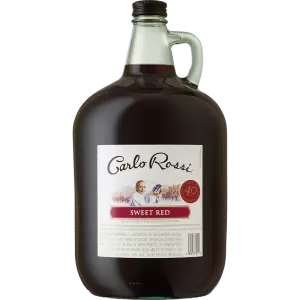
Is this really the solution to red wine headaches?
The Washington Post recently published an article titled “Does red wine give you headaches? Buy a cheaper bottle, scientists say.” Really?
The story goes like this. A specific population of people gets headaches from drinking red wine. This is not a hangover due to excessive drinking. Rather, this is a headache that starts within minutes to a few hours after having a glass of red wine.
Possible mechanisms of action have been extensively explored. This has included but is not limited to sulfites, tannins, and histamines. The cause, however, remains poorly understood.
A recent Nature paper hypothesized that a metabolite of quercetin, a pigment found in fruits, plants, vegetables, and grains, is responsible for such headaches. The case is well laid out in the article. Nature is perhaps the premier scientific publication.
So where does cheaper wine come in? The logic goes that if quercetin is the compound responsible for the red wine headaches, drinking wines that are lower in quercetin should solve the issue.
“As a general rule, cheaper wines have less quercetin,” Andrew Waterhouse, professor emeritus of enology at University of California at Davis and a co-author of the Nature paper, told The Post. “Usually it’s because the grapes get less sunlight than those in, say, the really expensive Cabernet they make in the Napa Valley.”
The relationship between quercetin and sun exposure is well-studied. However, quercetin causing red wine headaches in a specific population of people is a hypothesis, albeit a compelling one. It is also one that has had no human testing as of yet.
Cheaper red wines causing fewer headaches due to lower levels of quercetin is, as far as I know, an untested hypothesis based off another untested hypothesis. Additionally, how is “cheaper” even defined? For some that might mean $2 instead of $4 while for others it might be $20 instead of $40.
Moreover, by drinking less expensive wines you’ve arguably lowered your levels of quercetin. However, with less expensive red wines, you’re also more likely to find additives and increased sugar that have the potential to (you guessed it) increase the likelihood of headaches.
Don’t misunderstand me. I’m not challenging Dr. Waterhouse’s statement that less expensive wines tend to have less quercetin. Rather, I’m questioning The Washington Post making “buy cheaper red wines” the title of its article and the solution for red wine headaches.
As a writer, I strongly suspect The Post bubbled up that part of the article into the headline as it’s more clickable than “Scientists have compelling lead on red wine headaches.” It also offers something contradictory to expectations, which is a well-used article title trick to get eyeballs. Unfortunately here, it’s also a not necessarily a great piece of advice.
As a research scientist in another life, I also expect Dr. Waterhouse, like any good scientist, likely added a number of caveats to the quote above that would provide additional context. Heck, even the quote above by Waterhouse gave the caveat “as a general rule.”
The Nature paper by Devi, Levin, and Waterhouse states “There is considerable variation in quercetin levels among wines in the market. Hence, more detailed analysis of large samples of wines for quercetin levels could be helpful to guide wine drinkers who suffer [red wine headaches].”
If quercetin is the cause, the results from those types of experiments would be much more beneficial for people who suffer from red wine headaches. It would provide specific, actionable guidance. Steering people toward “cheaper” red wine, as The Post does, is neither specific nor actionable.
The bottom line for people who suffer from red wine headaches, there’s an interesting, as-of-yet untested hypothesis that quercetin might be responsible. Help might be on the way.
Drinking cheaper red wine as a fix for the issue? Count me as skeptical until that hypothesis is thoroughly tested and the specific parameters are defined so as to be meaningful to consumers.
Northwest Wine Report is wholly subscriber funded. It is currently below the minimum number of subscribers to be financially viable. Please subscribe to support continued independent content and reviews on this site. It’s the only way that this site will continue.
To receive articles via email, click here.







That means the population (don’t know the size) who take quercetin pills as antioxidant supplements will get headaches more often?
The quercetin in supplements has no effect on me as I take it regularly and before drinking with evening meal. Never an effect on me in any manner. As for cheaper wines, my experience a long time ago with jug wines was they have a high proportion of later press fractions in them. They would likely have more quercetin I would think.